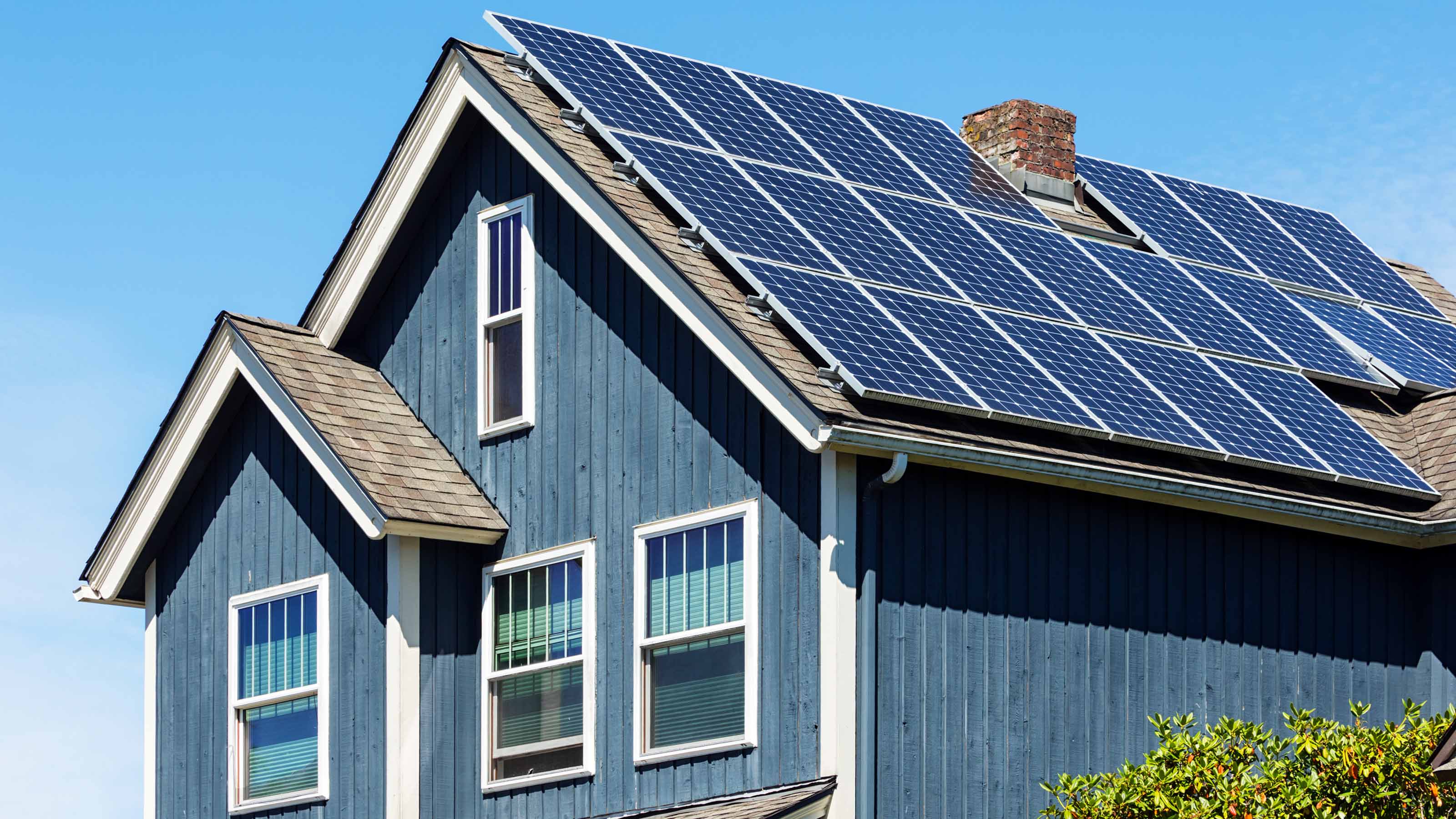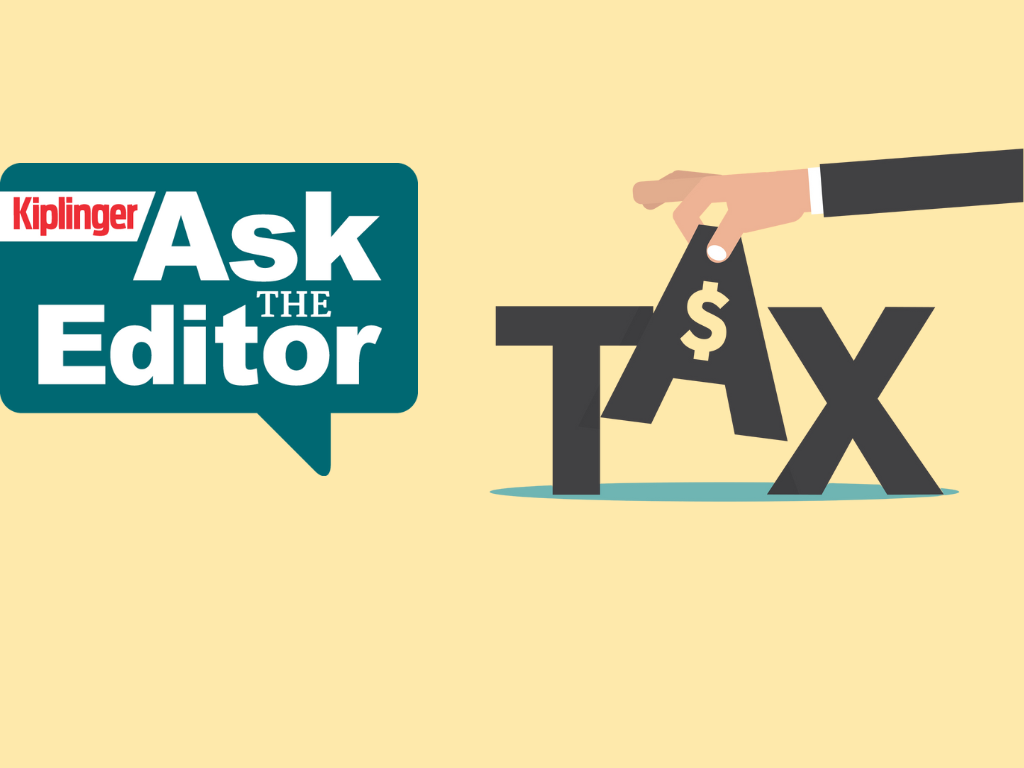Energy-Efficiency Credits — Get’ Em While You Can
Green energy-efficiency credits are on the chopping block. If you want some of these valuable tax credits, you'll need to upgrade your home sooner rather than later.


Profit and prosper with the best of Kiplinger's advice on investing, taxes, retirement, personal finance and much more. Delivered daily. Enter your email in the box and click Sign Me Up.
You are now subscribed
Your newsletter sign-up was successful
Want to add more newsletters?

Delivered daily
Kiplinger Today
Profit and prosper with the best of Kiplinger's advice on investing, taxes, retirement, personal finance and much more delivered daily. Smart money moves start here.

Sent five days a week
Kiplinger A Step Ahead
Get practical help to make better financial decisions in your everyday life, from spending to savings on top deals.

Delivered daily
Kiplinger Closing Bell
Get today's biggest financial and investing headlines delivered to your inbox every day the U.S. stock market is open.

Sent twice a week
Kiplinger Adviser Intel
Financial pros across the country share best practices and fresh tactics to preserve and grow your wealth.

Delivered weekly
Kiplinger Tax Tips
Trim your federal and state tax bills with practical tax-planning and tax-cutting strategies.

Sent twice a week
Kiplinger Retirement Tips
Your twice-a-week guide to planning and enjoying a financially secure and richly rewarding retirement

Sent bimonthly.
Kiplinger Adviser Angle
Insights for advisers, wealth managers and other financial professionals.

Sent twice a week
Kiplinger Investing Weekly
Your twice-a-week roundup of promising stocks, funds, companies and industries you should consider, ones you should avoid, and why.

Sent weekly for six weeks
Kiplinger Invest for Retirement
Your step-by-step six-part series on how to invest for retirement, from devising a successful strategy to exactly which investments to choose.
If you are mulling installing solar panels on your roof or making other energy-efficient improvements to your home, you may want to act quickly to take advantage of one of two federal income tax credits. First, is the residential clean energy property credit for homeowners who install a power system that uses solar or other renewable energy. Second, is the energy-efficient home improvement credit for homeowners who make smaller energy-saving purchases for their homes.
How long these two credits — which reduce the taxes you owe dollar for dollar — will remain on the books, and what, if any, changes will be made, are currently open questions. On May 22, the House passed its One Big Beautiful Bill that would extend the tax changes in the 2017 Tax Cuts and Jobs Act that automatically expire at the end of 2025. The bill also provides lots of other tax breaks.
The House's One Big Beautiful Bill would also scale back many of the green energy tax credits that were created, expanded or renewed in the 2022 Inflation Reduction Act., including the home energy savings tax credits. Specifically, the bill would repeal the residential clean energy property credit and the energy efficient home improvement credit, effective for property placed in service after 2025.
From just $107.88 $24.99 for Kiplinger Personal Finance
Become a smarter, better informed investor. Subscribe from just $107.88 $24.99, plus get up to 4 Special Issues

Sign up for Kiplinger’s Free Newsletters
Profit and prosper with the best of expert advice on investing, taxes, retirement, personal finance and more - straight to your e-mail.
Profit and prosper with the best of expert advice - straight to your e-mail.
Now it's the Senate's turn. The odds are good that Congress will pass a tax package sometime this summer, despite a series of hurdles that lawmakers will have to overcome. However, the Senate will make some changes to the bill, including possible revisions to the green energy tax credits.
Since homeowners may claim a home energy credit only for the year the improvements are made, if you’re thinking of making any energy-saving upgrades, you’ll want to pay for them and get them completed before December 31 to ensure a tax credit. They should be claimed using IRS Form 5695.
The residential clean energy property credit
This tax break is for homeowners who install an alternative energy system that relies on a renewable energy source, such as solar, wind, geothermal, or fuel cell or battery storage technology. Think solar panels, solar-powered water heaters, geothermal heat pumps, wind turbines, fuel cells, etc. The credit equals 30% of the cost of materials and installation or systems that you install in your home. There is no maximum credit dollar limit for solar, geothermal, wind, or battery storage systems. But for fuel cells, the credit is capped at $500 for each half-kilowatt of power capacity.
Unused residential clean energy property credits can be carried forward to reduce tax owed in future years. Homeowners who install a renewable energy system sometimes qualify for a rebate. These rebates are nontaxable, but they reduce the system’s cost for figuring the credit.
The energy efficient home improvement credit
The basic credit is 30% of the cost and installation of certain types of insulation, boilers, central air-conditioning systems, water heaters, heat pumps, exterior doors and windows, etc., that you install in a home. These items must also meet certain energy-efficiency requirements, depending on the product. There is a $1,200 general aggregate yearly credit limit. But many specific upgrades have lower monetary credit limits and others have higher ones.
Here are the item-by-item yearly caps: $150 for a home-energy audit; $500 in aggregate for exterior doors (a maximum of $250 per door); $600 for exterior windows or skylights, and $600 for natural gas, propane or oil water heaters, electric panels, central air conditioners, or natural gas, propane or oil furnaces or hot water boilers. And $2,000 for biomass stoves or biomass boilers, electric or natural gas heat pump water heaters, or electric or natural gas heat pumps. Unlike the residential clean energy property credit, you cannot carry forward any unused energy-efficient home improvement credits to future years.
As an example, let’s say that in 2025, you purchase and install in your home two exterior doors at a cost of $1,000 each, windows and skylights at a total cost of $2,200, and a $6,000 central air conditioner. Your 2025 tax credit amount is $1,200. Now, change the facts. In 2025, you purchase and install in your home a natural gas heat pump that costs $7,000, a $4,000 natural gas tankless water heater, and a $6,000 central air conditioner. Your total maximum credit is $3,200: $2,000 for the heat pump. $600 for the water heater and $600 for the air conditioner.
For more on these credits and the documentation they require, read Tax Credits for Energy-Efficiency Home Improvement in 2025.
Note: This item first appeared in Kiplinger Retirement Report, our popular monthly periodical that covers key concerns of affluent older Americans who are retired or preparing for retirement. Subscribe for retirement advice that’s right on the money.
Related content
Profit and prosper with the best of Kiplinger's advice on investing, taxes, retirement, personal finance and much more. Delivered daily. Enter your email in the box and click Sign Me Up.

Joy is an experienced CPA and tax attorney with an L.L.M. in Taxation from New York University School of Law. After many years working for big law and accounting firms, Joy saw the light and now puts her education, legal experience and in-depth knowledge of federal tax law to use writing for Kiplinger. She writes and edits The Kiplinger Tax Letter and contributes federal tax and retirement stories to kiplinger.com and Kiplinger’s Retirement Report. Her articles have been picked up by the Washington Post and other media outlets. Joy has also appeared as a tax expert in newspapers, on television and on radio discussing federal tax developments.
-
 Quiz: Do You Know How to Avoid the "Medigap Trap?"
Quiz: Do You Know How to Avoid the "Medigap Trap?"Quiz Test your basic knowledge of the "Medigap Trap" in our quick quiz.
-
 5 Top Tax-Efficient Mutual Funds for Smarter Investing
5 Top Tax-Efficient Mutual Funds for Smarter InvestingMutual funds are many things, but "tax-friendly" usually isn't one of them. These are the exceptions.
-
 AI Sparks Existential Crisis for Software Stocks
AI Sparks Existential Crisis for Software StocksThe Kiplinger Letter Fears that SaaS subscription software could be rendered obsolete by artificial intelligence make investors jittery.
-
 We Retired at 62 With $6.1 Million. My Wife Wants to Make Large Donations, but I Want to Travel and Buy a Lake House.
We Retired at 62 With $6.1 Million. My Wife Wants to Make Large Donations, but I Want to Travel and Buy a Lake House.We are 62 and finally retired after decades of hard work. I see the lakehouse as an investment in our happiness.
-
 I'm an Opportunity Zone Pro: This Is How to Deliver Roth-Like Tax-Free Growth (Without Contribution Limits)
I'm an Opportunity Zone Pro: This Is How to Deliver Roth-Like Tax-Free Growth (Without Contribution Limits)Investors who combine Roth IRAs, the gold standard of tax-free savings, with qualified opportunity funds could enjoy decades of tax-free growth.
-
 I'm a Real Estate Investing Pro: This Is How to Use 1031 Exchanges to Scale Up Your Real Estate Empire
I'm a Real Estate Investing Pro: This Is How to Use 1031 Exchanges to Scale Up Your Real Estate EmpireSmall rental properties can be excellent investments, but you can use 1031 exchanges to transition to commercial real estate for bigger wealth-building.
-
 My Spouse and I Are Saving Money for a Down Payment on a House. Which Savings Account is the Best Way to Reach Our Goal?
My Spouse and I Are Saving Money for a Down Payment on a House. Which Savings Account is the Best Way to Reach Our Goal?Learn how timing matters when it comes to choosing the right account.
-
 Ask the Editor, February 13: More Questions on IRAs
Ask the Editor, February 13: More Questions on IRAsAsk the Editor In this week's Ask the Editor Q&A, Joy Taylor answers questions on IRAs
-
 4 Pro Tips for Successfully Scaling the Medicare Mountain
4 Pro Tips for Successfully Scaling the Medicare MountainAttempting to conquer Medicare without a plan is risky. The safest route requires a thorough understanding of your options and never leaves decisions to chance.
-
 For More Flexible Giving, Consider Combining a Charitable Remainder Trust With a Donor-Advised Fund
For More Flexible Giving, Consider Combining a Charitable Remainder Trust With a Donor-Advised FundIf a charitable remainder trust puts too many constraints on your family's charitable giving, consider combining it with a donor-advised fund for more control.
-
 The Illinois 'Cliff Tax': A Single Dollar Could Cost Families Hundreds of Thousands
The Illinois 'Cliff Tax': A Single Dollar Could Cost Families Hundreds of ThousandsIllinois' estate tax "threshold" (rather than "exemption") can surprise families, but proactive planning can help preserve more for heirs and charitable causes.